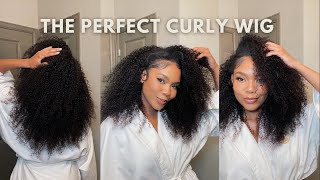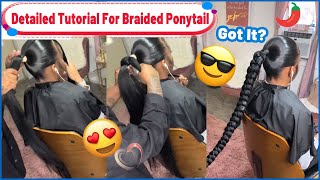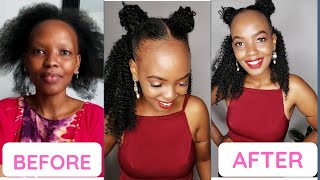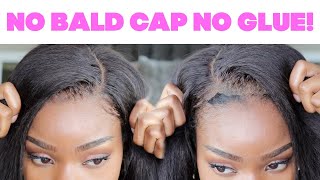The Natural Hair Movement Sure Has Come A Long Way But Where Did It Begin?

Since I’ve been natural for 2 years, I’ve never really thought about the history of natural hair. I was simply enjoying my kinky* roots since I became natural.
But for a while now, I realized that there is a root to all things natural and I have been wondering: how did the natural hair movement begin? What exactly happened that made black women really embrace and feel confident in wearing their curls, coils, and kinks?
Sure we are running around now talking about “team natural” but if you really think about it, the natural hair movement wasn’t started in this generation. In fact it has always existed to some degree, even back when our ancestors were enslaved. Think about it, in some tribes on the continent of Africa, our hair is a big deal; since it is used to indicate one’s status in the society. Different styles differentiated the royals from the common people, while some signified those who were married or those who belonged to a particular bloodline or clan. It was linked to our identity, it told us where we belonged (and now that I think of it, it’s no wonder we all seem to always want variety when it comes to our hair).
It is for this reason that back in the days of slavery there were laws specifically for our hair care. We were not allowed to wear elaborate styles, hence the popularity of the scarves to tie our hair away and keep it hidden. We were not allowed to practice ancestral braiding. To this day this law still creates problems for us, remember the story of Isis Brantley? Our style, our flair was so unique that it was viewed a danger, for our spirits had to be broken and everything that told us who we were, everything that would help us identify as kings, queens, nobles, had to be stripped from us and the practices broken so the next generation would forget.
But if we should pinpoint a time when we started to defy the laws and break free of the limitations set on us then the period between 1964 and the 1970s would be it. At that time civil rights wranglings had given rise to the Black Power movement.
According to Ingrid Banks, Associate Professor of Black Studies at University of California Santa Barbara states, it was around that time that:
the pressing comb and chemical relaxers became oppressive because they were tools that symbolized the shame associated with black hair in its natural state.” (Hair Matters: Beauty, Power, and Black Women’s Consciousness)
Back then Kathleen Cleaver who was a member of the Black Panther Party had loads to say about our hair. Here’s a snippet of what she said:
The reason for it, you might say, is a new awareness among black people that their own natural appearance, their physical appearance, is beautiful. It is pleasing to them … For so many, many years we were told only white people were beautiful. Only straight hair, light eyes, light skin was beautiful, and so black women would try everything they could to straighten their hair and lighten their skin to look as much like white women … But this has changed because black people are aware, … and white people are aware of it too because [they] now want natural wigs* … They want wigs* like this [points to her natural hair].”
 Sadly that era of the natural hair movement lasted up to the 70s then fizzled out after the Black Panthers and black consciousness were destroyed.
Sadly that era of the natural hair movement lasted up to the 70s then fizzled out after the Black Panthers and black consciousness were destroyed.
Racial profiling was a big part of that since if you wore an Afro then you were targeted because it was believed you were a part of the Panther Party.
An Afro could get you shot or thrown into jail, so women and men out of fear went back to the straightening combs. Since then the Afro has been deemed to be associated with anarchy.
Before the modern day natural hair movement, some black women were always prim and proper with relaxed hair since the early age of 7 (sometimes earlier). Our mothers would not allow us to “break the rules” or let us leave the house without our hair “intact.”
Other than relaxers, there were products promising to “tame uncontrollable hair,” “kinks gone in a blink,” and “fix that frizzy hair quick.” We would use flat irons*, hot combs, oily serums, and straightening creams to condemn every coily kink we had, ensuring that our hair did not result in that embarrassing “nappy mess.”
Self-image and self-worth were affected from seeing other girls at school with long and flowing straight hair. We would see magazines and TV shows with women and girls with the straight hair we longed for.
So if we could not grow it, then we purchased wigs* and weaves* searching for ways to make those products seem like our natural hair. We wanted to be accepted at school, in our family, and out in public. Beauty by the European standard became more important over the health of our coily and kinky* hair.
Then 2008 came. Black women became frustrated and tired of relaxers and other chemicals destroying what little hair we had.
Going to the salon became too expensive. We started realizing we had signed away the health of our bodies and well-being for our “beauty parlor styles,” and we just got tired of the elevated health risks. Something had to change. We all knew it but we were still unsure about what exactly to do.
We had two options, stop relaxing and transition or big chop. But those decisions did not exist in a vacuum. We cannot downplay the role the rise of social media had with this phenomenon.
YouTube and blogs became a new and effective tool that not only reached black women trying to learn to care for their hair in a healthy way but brought us together for support as well. This became a platform for the newbie naturalistas to learn and to help others.
As more and more women learned tips to have healthy and long natural hair with successful results, more women stopped getting relaxers and other chemicals to straighten their hair. That’s when the snowball effect happened.
Since then the natural hair movement has come a long way. According to Danielle Douglas of Washington Post, from 2009-2011 the sales of chemical relaxers decreased 12.4%. In 2011, YouTube sensations flourished from newbie naturalistas to full-grown veterans with mid-back to waist length hair!
 Black women promised they would never relax their hair again, which affected relaxer sales to the point that today they are on the bottom shelf of Wal-Mart for no more than $2.99 a box!
Black women promised they would never relax their hair again, which affected relaxer sales to the point that today they are on the bottom shelf of Wal-Mart for no more than $2.99 a box!
Now naturalistas are showing off their fun and simple natural hair styles on Instagram, with a huge following.
You see naturalistas putting their full bouncy curls on display and winning a huge following; the majority of whom are awestruck and wondering “how she got her hair to be that way” and commenting that they “want it too.”
There are numerous websites and blogs contributing to the natural hair movement with advice and tips on how to care for your own natural hair and the benefits of having natural hair.
Forums, message boards, mobile apps, and even Facebook have numerous groups and discussions for ways to care for and accept natural hair.
Mainstream magazines, TV shows, commercials, and billboard ads have praised natural hair and even have a huge cast call for natural hair models for their label or brand.
There are more black owned entrepreneurs who have created botanical and other natural ingredient healthy products that actually cater to the natural haired women like: Shea Moisture*, As I Am*, Camille Rose Naturals, Kinky* Curly, Jane Carter Solution, and Miss Jessie’s.
Even companies who used to sell relaxers have gone back to the drawing board to appeal to naturalistas with their “new and improved” hair products, by using slogans like: “Anti-Shrinkage” and “Argan Oil* and Argan Butter.” Barbie has even become a naturalista from wearing a huge Fro to having fierce locs. Everyone wants to contribute to the natural hair movement!
So here we are in 2015. Natural hair is not political like it was in the 70s and 80s. Now, the natural hair movement is overriding the social ideas and standards of what is “beauty.” The natural hair movement is more than black love and proud of being black with a strong fist raised.
The natural hair movement is not about relaxed vs natural vs weaves* vs anything else under the sun. The natural hair movement is about self-love and acceptance of the hair you are blessed with naturally. There is no “you are with us or against us,” rather, the natural hair movement is saying, “I love my hair no matter what anyone else thinks of my hair and I support all of my sisters in love, bonding, and well… hair!




